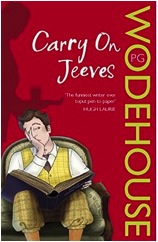 When I was thirteen years old my reading habits, which had previously been limited to J. R. Tolkien, W .E. Johns, and their ilk, expanded. Filled with intellectual curiosity and a massively inflated sense of my own understanding of the world, I tried to tackle books which, in retrospect, were far too intellectually unwieldy for me at the time. I dutifully read a volume by Eric Hobsbawm cover-to-cover despite understanding only one sentence in five. Orwell spoke to me (as he does to every teenager) although I could not quite square his politics with the smattering of Marxism I had read. Plath, of course, resonated.
When I was thirteen years old my reading habits, which had previously been limited to J. R. Tolkien, W .E. Johns, and their ilk, expanded. Filled with intellectual curiosity and a massively inflated sense of my own understanding of the world, I tried to tackle books which, in retrospect, were far too intellectually unwieldy for me at the time. I dutifully read a volume by Eric Hobsbawm cover-to-cover despite understanding only one sentence in five. Orwell spoke to me (as he does to every teenager) although I could not quite square his politics with the smattering of Marxism I had read. Plath, of course, resonated.
One gem I uncovered during that period was the English comic novelist P. G. Wodehouse and when I look back on my formative years as a reader I sometimes wonder if it wouldn’t have been better for me to set aside the weighter tomes (all those hours spent looking at Shakespeare) for a while and instead have devoted myself fully to the task of devouring the Wodehouse canon.
I found Jeeves and Wooster to be Wodehouses’ most compelling creation (history appears to be on my side on this point). Each J. and W. story follows, broadly, the same plot; Bertram Wooster, a well-meaning but somewhat, to use Jeeves’ affectionate words ‘mentally deficient’ man-child of independent means, gets into some kind of a mess and Jeeves, his faithful butler, rescues him from it. Bertie’s misadventures are rarely his own doing – they are generally instigated by an old school chum who has had a fall-out with his affianced and in need of help, or an aunt who is trying to out-maneuver her husband. Bertie’s problems are almost entirely external; left to his own devices he can generally be found sitting around in his New York or London apartment, spending time with his friends at the Drones (a gentleman’s club for boisterous – fourth sons with a lot of money and no occupation) or some of the more fashionable areas of France, reading a pulp detective novel, recovering from a hangover, or indulging in a little gambling. He occasionally finds himself temporarily besotted with a member of the opposite sex, but the danger soon passes. As each novel progresses a comedy of errors ensues. Various parties appear to foil the plans of Bertie and those he holds dear, often in the form of some terrifying patriarch who, as a result of some misunderstanding, wants to tear our young hero limb from limb. Just as we reach the moment when all seems lost, Jeeves swoops in with one of his ingenious plans and the whole matter is resolved.
One does not read Jeeves and Wooster for the story, of course, but for the language. One can let a Wodehouse novel fall open and, briefly surveying the page, find a marvelously-wrought sentence. Consider, for example, the following, found in Carry On, Jeeves:
Lady Malvern was a hearty, happy, healthy overpowering sort of dashed female. Not so very tall but making up for it by measuring about six feet from the O.P. to the Prompt Side. She fitted into my biggest armchair as if it had been built around her by someone who knew that they were wearing armchairs tight about the hips this season.
In just three sentences Wodehouse leaps from the theatre (‘o.p.’ and ‘prompt side’ being opposite sides of a stage) to the language of fashion. The word ‘dashed’ wonderfully evokes not just a language but a world-view laden-heavy with the Edwardian era. His very phrasing at once evokes and gently ridicules a world of waistcoats, high collars, and entitlement.
Despite the oft quoted phrase that analysing Wodehouse is like ‘taking a spade to a souffle’, we have a variety of terms which we can bring to bear upon the numerous literary devices found in his prose. He is the master of dramatic irony (in Right Ho Jeeves Bertie sips a cocktail and feels like ‘Cesar having one in his tent the day he overcame Nervii’) and the transferred epithet (‘I pronged a moody forkful’). It is perhaps his bathos which produces in me the most glee. In Jeeves and the Feudal Spirit, as a pair of lovers have a tearful and passionate reunion Bertie, witnessing the scene, muses that the toast he is eating is a bit cold, but that’s quite alright – he rather likes cold toast so long as it has plenty of butter on it.
We can describe the mechanics of Wodehouse’s prose, then, but there is a gulf between taxonomy and analysis. Here the spade soufflé analogy becomes apt, as Wodehouse’s works are often determinedly detached from historical and social realities. Evelyn Waugh, writing in praise of his peer, describes the world Wodehouse presents works as ‘idyllic’, and Auden described him as ‘one of the great English experts on Eden’. The two wars which Wodehouse lived through, including internment in a Nazi prison in France and a shattered reputation in England, never intrude upon his works. As a professional book botherer and Wodehouse fan one would think I would have a lot to say on his works, but I often find that there is little in Wodehouse which is not already on the page.
The quaint and insular world of the English gentry which Wodehouse presents is not entirely apolitical, however. Some have found in Wodehouse a reversal of roles and an unbalancing of the social order. Sophie Ratcliffe argues that in Wodehouse stories those of the lower social orders (butlers, chorus girls), often prove themselves to be more capable than those who were seen as their social betters. She defends the point by observing that in his correspondence Wodehouse shows a ‘lack of snobbery and prejudice’, being as diligent in writing to a former housekeeper as to George Orwell.
Following Ratcliffe, one can read Wodehouse as social critique. Bertie is unwittingly snobbish and child-like. He is a well-educated imbecile who wields his impressive vocabulary like a blunderbuss. He has achieved almost nothing in life (the prize for scriptural knowledge which he won as a child comes up with comical regularity). His opulence and unconscious disregard for anyone outside of his social class is striking. He worries, often, about Marxist radicals baying for his blood and when one sees how he lives one can understand why. It is a testament to the insularity of his world view that Bertie’s implied reader is one of his own (‘I don’t know if you were at Cannes this year…’ he writes).
Despite the heroic role given to the lower classes in Wodehouse’s works, it is rare we have more than a few lines of dialogue from the subaltern. Even Jeeves lives a life largely shrouded in mystery, appearing only to assist the young master in his time of need. We know that Jeeves likes to bet. He sometimes takes fishing trips. He has an extended family which is particularly replete with aunts. He routinely quotes Shakespeare and Tennyson, but these things appear only as glimpses of a larger, submerged, whole. We see him only through Bertie’s eyes – as a kind of dutiful sorcerer (he eats a lot of fish) and idealised mother rather than a human being. Even when Jeeves narrates one of the short stories he sticks to the particularities of the matter at hand. His inner life remains, frustratingly, obfuscated.
When Sebastian Faulks took the reigns he pushed this criticism a little further – his version of Jeeves lost a relative in the Boer War and, when he reports this, receives no sympathy. Some of Bertie’s lot lost money when Emily Davison threw herself before a racehorse and they are far more concerned about a poor bet than the social changes promised by women’s liberation. Faulks, unlike Wodehouse, situates Jeeves and Bertie in history, even if that history seems to pass them by, making their time on this earth jarringly finite (in one of his letters Wodehouse laments that his novels would become ‘historical’ after the war given that Bertie would not be able to afford a butler with income tax as it was).
This is not to say that the changing political climate in England never pushes against the boundaries of Bertie’s world in Woodehouse’s books. Plum was fully conscious that he was capturing the dying days of the British aristocracy; Bertie attempts (unsuccessfully) to learn how to darn his own socks, and at one point witnesses a Marxist rally (only because a chum was trying to win over a lady there present). The world never pushed too hard, however. Bertie encounters threats to his way of life, but those threats, like those internal to his world, are always resolved.
It is hard to read too much social criticism in Wodehouse, then, because there is no sting. Wodehouse does not want to see the British gentry come to an end – his work is a celebration of useless people. Bertie’s shortsightedness does not make him a monster, but a child, and Wodehouse, if anything, wants to protect him. We find Bertie, like my thirteen year old self, poised, precariously, on the cusp of adulthood, but (unlike self) he never quite falls. This is, perhaps, why he has such fondness for overbearing aunts, why he is terrified by father figures such as Robert Spode, (who reminds him of his old schoolmaster and tries to talk to him like an adult). Marriage is a prospect Bertie often, in moments of madness, embraces and then seeks to escape from. Bertie, Peter Pan-like, lives out a fantasy of perpetual youth. He belongs to a world of no responsibilities, where nothing really changes, where Jeeves’ maternal embrace will always encircle him. The predictability and insularity of Bertie’s life is comforting. Aunts will be disappointed. Old school chums will fall in, and out, and back in love. Fearsome men like Roderick Spode will make sincere attempts to kill Bertie. Social change looms. But at the end of the day Jeeves sweeps in and fixes everything.

